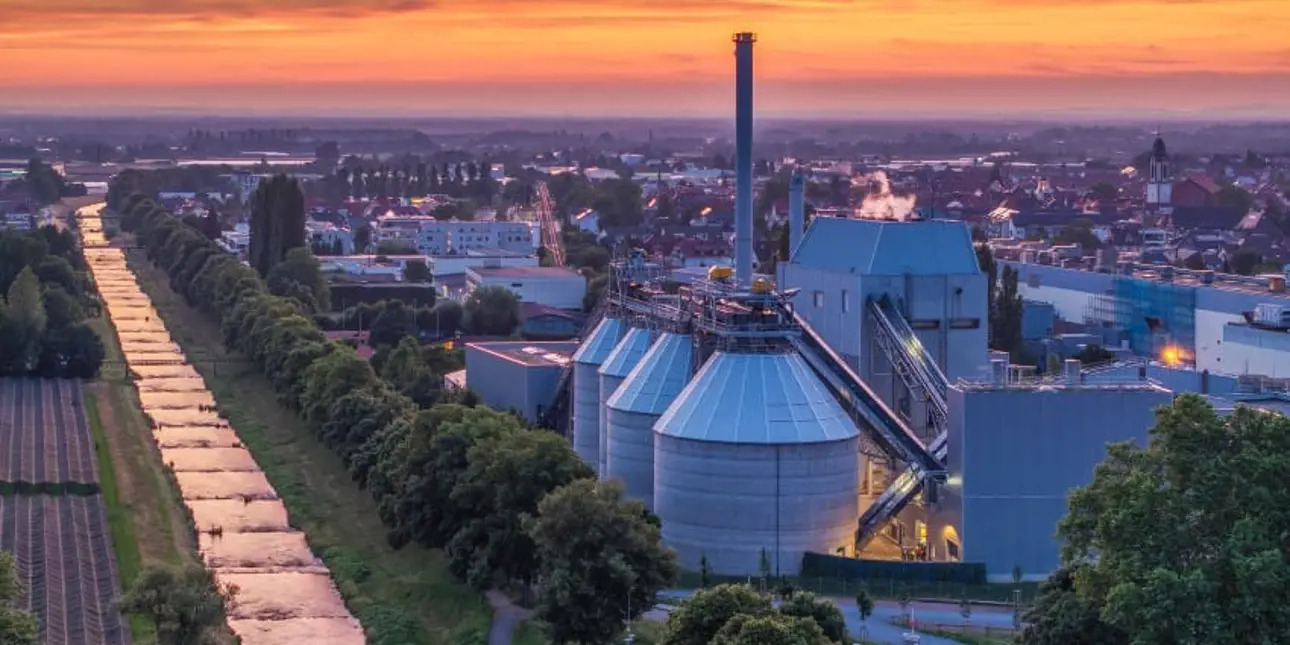The next level in CO2-neutral energy production
Converting an existing circulating fluidized bed boiler from coal to biomass firing takes the Koehler Group a step closer to meeting its climate targets. Valmet was chosen to deliver the conversion because of our energy industry expertise and strong references.

The Koehler Group, a family-owned German enterprise with a history of more than 215 years, encompasses ten company brands and employs 2,500 people. In the paper industry, Koehler Paper is best known for the development and production of high-quality specialty paper, with an annual production capacity of around 500,000 tonnes of specialty paper and board for the global market.
Valmet demonstrated the professionalism and expertise we were looking for.
Founded in 2012, Koehler Renewable Energy was created to support the Group’s energy independence. Today, it operates more than twenty facilities, providing electricity and steam to Koehler’s paper mills, as well as to external industry partners and the public grid. The company plays a key role in achieving the Group’s climate objectives.
“We’ve set ourselves the goal of generating more energy from renewable sources with our own plants than we need for our paper production by 2030,” says Kai Furler, CEO of the Koehler Group.
Power boiler upgrades in Oberkirch and Kehl
Originally, Koehler was seeking a solution to replace the hard coal, paper fiber and sewage sludge, and substitute fuels used to fire the circulating fluidized bed (CFB) boiler at their Oberkirch power plant. After some studies, they decided to convert the boiler from coal to biomass firing.
We felt completely supported by Valmet’s experts.
“Once we’d made the decision, one question remained: what would we do with the paper fiber and municipal sewage sludge that had previously been combusted at the plant?” says Michael Schmölz, Senior Project Engineer at Koehler Renewable Energy.
“To qualify for subsidies under Germany’s Renewable Energy Sources Act, we needed an alternative solution for utilizing the sludge. Fortunately, we didn’t have to look far. By converting the CFB boiler at the nearby Kehl power plant, we could continue to use the leftover sludge,” he continues.
Selected for proven expertise
When Koehler began exploring potential partners for the boiler conversion projects in Oberkirch and Kehl, Valmet appeared to be a strong candidate because of their extensive power plant construction and energy system conversion experience. Before the final decision, Valmet was selected to supply preliminary works at the Kehl site, providing a valuable insight into Valmet’s technical competence, project management skills, and collaborative approach.

From left to right: Project Engineer Phil König-Jockers, Project Engineer Michael Schmölz, and Oberkirch Power Plant Manager Theo Maier in front of the converted plant in Oberkirch.
“Valmet demonstrated the professionalism and expertise we were looking for, but the decision was also about trust, responsiveness, and a shared commitment to safety. Their ability to deliver complex conversions precisely and reliably gave us the confidence to move forward with them on both sites,” says Phil König-Jockers, Project Engineer at Koehler Renewable Energy.
Cooperation and problem solving
Valmet’s delivery to the Oberkirch plant included the boiler conversion and a new biomass feeding system, new burners for renewable fuel, additional heating surfaces, ash removal improvement, a selective non-catalytic reduction (SNCR) system, and additive feeding for the baghouse filter. At the Kehl plant, Valmet modified the existing CFB boiler and delivered equipment to add paper and sewage sludge to the plant’s fuel portfolio.
From the initial sales discussions to commissioning, both boiler conversion projects were marked by a cooperative atmosphere and professionalism.
“We felt completely supported by Valmet’s experts and appreciated the pleasant and open atmosphere throughout the projects. Even when opinions differed, the discussions remained constructive, focusing on finding mutually acceptable solutions. Valmet’s commitment to health, safety, and environmental standards was also excellent, which meant we easily met the regulatory and internal expectations,” says Michael Schmölz, Project Engineer at Koehler Renewable Energy.
Reducing CO2 emissions
As a result, both projects’ original targets were achieved. Converting Oberkirch’s CFB boiler from coal to biomass enables Koehler to save around 150,000 tonnes of CO2 emissions per year, which is a significant step forward in achieving the company’s goal of climate-neutral energy production. At Kehl, paper fiber and sewage sludge can be utilized as planned.
“Overall, we’re very satisfied with the boiler upgrades. In addition to both boilers’ good performance, the professionally installed equipment with high-quality components leads to the plants’ simplified maintenance and high availability,” says Michael Schmölz.
Text Marianne Valta
PHOTOS Koehler Group
